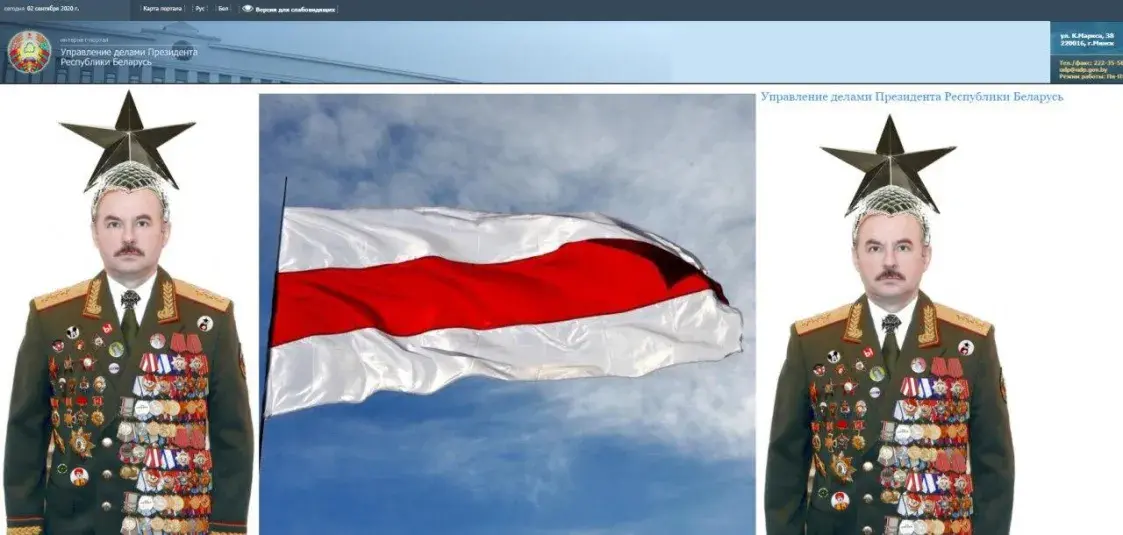Belarus PM talks about 'digital sovereignty' as data flows to Russia

Raman Halouchanka got interested in digital security and artificial intelligence / Collage by Ulad Rubanau, Euroradio
Belarusian Prime Minister Raman Halouchanka says the country "must ensure digital sovereignty. And here we rely on our partners, first of all the Russian Federation".
At the same time, last fall it emerged that Belarus and Russia would have a single tax base. The data will be stored on the platform developed by the Russians, and Belarusian officials will regularly submit information about Belarusians there. If there are no reports, there will be no compensation for the tax maneuver. It turns out that Aliaksandr Lukashenka, after his talks with Vladimir Putin, decided to simply sell people's data.
What digital sovereignty then? Euroradio found out why, while counting on the main "partner", Belarus is losing its independence.
What is "digital sovereignty" anyway?
Around 2015, officials began to worry about digital sovereignty. The term appeared in the Strategy for the development of informatisation policy in Belarus for 2016-2022. The document, however, did not explain what it was. So let's take the definition from the BSU library.
One of the publications says that it is "a real possibility for the state to independently and autonomously determine and implement its information policy, to create and manage information resources, infrastructure of the national space, as well as to ensure information security". In other words, this includes, among other things, resistance to cyber attacks, protection of data from theft and leakage. It's also about self-management of information space. It requires a national segment of the Internet, security tools, search engines, social networks and media.
Data protection failure
The work of cyberpartisans has shown that the Belarusian system is not resistant to cyberattacks. As a result of the hackers' work, the state lost entire databases of info on Belarusians. It wasn't a group that positioned itself as a fighter for the restoration of Belarusians' rights that could have obtained them, but people who wanted to make money by selling personal data.
"It's hard to talk about digital sovereignty when you're dependent on Russia in other areas: financial, military," says Cyberguard spokeswoman Yuliana Shametavets. "That said, Cyberpartisans have not seen any joint databases with the Russian regime, at least not until 2021 for sure. Only the "Rozysk" database had something like this. My colleagues believe that Lukashenka does not trust the FSB and will not give them direct access to state systems."
"The same thing happens with Mail.ru, Yandex, Odnoklassniki. There is no digital security. They say [Belarusian officials - Euroradio] that we need to ensure security, so that everything would be independent. In fact, it's useless piece of paper, and information is transmitted without any authorization from the prosecutor and so on. So it's all smoke and mirrors. In fact, Belarus is following a bad path: joining the Russian Federation.
The content of the mail of the MP Aleg Haidukevich, for example, is no secret for Russia. After all, he posted them on the Russian rambler.ru.
Kupreichyk urges Belarusians not to use such services and to use a VPN.
Part of sovereignty regained by independent media
Another part of digital sovereignty is the information space. Here, the Belarusian authorities try by all means to squeeze out the media that promote the Belarusian agenda. The state media benefit from this, and the Russian media benefit more than they do.
"Russian outlets have additional advantages for reference services and search engines ," says media expert Paulyuk Bykouski. "It is, so to speak, authority, coverage and traffic. For search engines, this is a sign that these outlets are likely to satisfy a human need. As a result, Russian outlets often come out on top, even in comparison with Belarusian state outlets. This is not a catastrophic situation, but it is alarming.





















